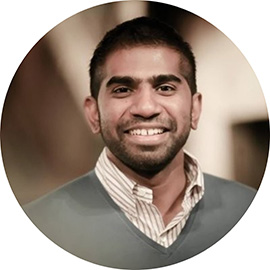The Wheeler Institute for Business and Development, in partnership with Dharma Life Labs, hosted the Power of Business: Bringing together global and local voices event, featuring two panel discussions that explored how businesses can drive meaningful social impact. This blog is about the first panel – Innovating to Empower.
We were proud to welcome a panel of inspiring speakers discussed the diverse ways in which businesses contribute to social and economic progress. While corporate social responsibility and fair taxation were key topics. The conversation also highlighted the crucial role businesses play in providing essential products, services, and jobs. Panellists explored how innovation and entrepreneurship empower communities—transforming industries from biofuels to food, democratizing financial technology, and supporting rural enterprises. They shared insights on how business can drive sustainable change, while also navigating the complex challenge of balancing profit with purpose.
Moderated by Rajesh Chandy this panel brought together voices from diverse sectors including Muthiah Murugappan (CEO of EID Parry India Ltd and LBS alumni), Rohini Patil, (Dharma Life Entrepreneur), and Luke Beavon, (UK CEO of SumUp). Through a combination of corporate innovation, local entrepreneurship, and employment creation, the panellists illustrated the potential of business to empower communities and address urgent social and economic issues.






Essential Products and Services
For Murugappan, delivering needed products and services is the centre of business impact. His company’s transformation from traditional sugar production to biofuels exemplifies this approach. “We not only see a good business model but also an impact we are making on the environment, on climate change, on India, and on the world at large,” Murugappan explained.
Beyond biofuels, EID Parry’s expansion into branded food products demonstrates another dimension of serving essential needs. In segments where unbranded products dominate, the company brings consumers high-quality, safe food options. “We’re providing consumers with a suite of products so they can make choices based on their health requirements,” Murugappan noted.
Giving an example, Murugappan explains how increasing health consciousness has led to greater consumer demand for healthier options. He highlights the company’s move into jaggery, a natural Indian sweetener that is already a staple in many households across India. “When we started converting parts of our core sugar factories into jaggery modules, we found it requires fewer chemical agricultural inputs, has lower processing costs, and uses less energy. Jaggery is far healthier than refined sugar, both from a farm, energy, and consumer perspective.”
Beavon, on his side, shared how SumUp has used financial technology to provide a previously non-existent service to small businesses. “Twelve years ago, it would have been practically impossible for a seasonal Christmas tree seller to accept card payments,” he explained. SumUp’s no-monthly-fee model has democratised payment technology. It has enabled hundreds of thousands of small businesses in less mature markets to accept card payments, helping them grow and serve their communities better.

Employment Creation
Breaking from her village’s traditional focus on cattle rearing, Patil pioneered a honey production business in rural India, becoming the first in her region to do so. “I understood that as we grow, we create opportunities,” she explained.
Initially lacking technical expertise, Patil found a turning point through Dharma Life’s support. Dharma Life trained her in skills such as marketing and packaging. Additionally, through the Internet Saathi program, Patil not only learned to use a mobile phone for the first time but went on to train more than 1,000 village women in digital literacy. This became a powerful tool for her business. It allowed her to access beekeeping techniques and market information previously out of reach.
Today, Patil has evolved into a trainer who guides other women in establishing their own honey-making enterprises. She has multiplied the employment effect and empowered the women in her community.

Looking ahead: Navigating Challenges in Doing Good
The panellists highlighted the positive impact of their work, while acknowledging the challenges of aligning profit with purpose. Balancing economic sustainability with social responsibility, rethinking business models, and overcoming cultural and financial barriers are complex but necessary steps for meaningful change. Beavon spoke of the tension between profitability and sustainability, while Murugappan noted the hesitation in pursuing socially driven ventures. Patil shared how she overcame cultural norms and secured alternative funding through community support. Looking ahead, they agreed that tackling these challenges is key to building resilient inclusive economies, where businesses contribute not only to profit but also to societal well-being.
The event was supported by London Business School’s Women in Business, Social Impact Club and India Club.
About the event
The Power of Business – bringing together global and local voices was a collaboration with Dharma Life Labs is an initiative focused on advancing research and implementing scalable solutions in rural India, fostering inclusive growth through innovation and strategic partnerships.
This panel discussion explored how businesses can drive social and economic progress, focusing on corporate social responsibility, essential services, innovation, and employment creation, while addressing the challenges of balancing profit with purpose in their operations.
You can read the blog post about the second panel The Power of Business: Flourishing Careers, Flourishing Children: Lessons in Balancing Family and Work here, where panellists explored how balancing career and caregiving presents barriers to gender equality. They discussed the need for coordinated efforts from governments, corporations, and communities to support women in both family and professional roles, emphasising the importance of shared responsibilities and inclusive policies.
About the speakers

Rohini Patil embarked on her Dharma Life entrepreneurship journey in mid-2016, having previously never used a smartphone or the Internet. Through Dharma Life’s digital literacy program, Rohini transformed her small beekeeping business, started in 2014, into a thriving enterprise by leveraging online tools for promotion and learning. She now manages her own website and raises awareness about clean energy, nutrition, and social impact products like water purifiers and solar lights in her village and neighboring areas. Rohini also supports 10 self-help groups, handles their accounts and gained notable public speaking experience through a Sarpanch election candidacy. Recognized for her achievements, she won the “Power Woman Award, 2019” by Woman Hike. Rohini proudly represents the success of Dharma Life’s women entrepreneurship model, highlighting her commitment to improving lives at the grassroots level.

Rajesh Chandy is Professor of Marketing and the Tony and Maureen Wheeler Chair in Entrepreneurship at London Business School, where he is also the Academic Director of the Wheeler Institute for Business and Development. Rajesh’s current research lies at the intersection of business and development. His recent projects have covered the impact of business skills among micro-entrepreneurs in South Africa, novel financing approaches in Ghana, property rights in slums in Egypt, innovation among farmers in India, highways and private education expenditures in India, and using big data for development outcomes.

Muthiah Murugappan, CEO & Director of EID Parry India Ltd., a business leader who has transformed his company’s role in the biofuel, nutrition, and sugar retail sectors, bringing sustainability to the forefront of traditional industries. Mr. Muthiah Murugappan has completed his MBA from London Business School. He is B.Sc. Management Sciences from University of Warwick (Warwick Business School). He started his career in August 2004 with Indian FMCG major – CavinKare Pvt Ltd.

Luke Beavon is the former COO of Goodtill, acquired by SumUp, and has 15+ years of experience in finance for scale-up tech firms. In 2023, he transitioned from SumUp’s CFO to UK CEO. Outside of work, Luke is a drum-and-bass DJ and producer, performing as LSB at venues like Fabric. He’s frequently featured on BBC radio and quoted in major publications such as The Times, The Telegraph, and Bloomberg, discussing topics like mobile ordering and shifts in customer behaviour post-pandemic.
About the author

Juliana Escobar Díaz (LBS MBA 2025) is an Outreach and Communications Intern at the Wheeler Institute for Business and Development. Prior to joining London Business School, Juliana spent four years at McKinsey & Company as a Location and Business Analyst, based in Bogotá. She has a keen interest in business for impact and business as a force for good.
